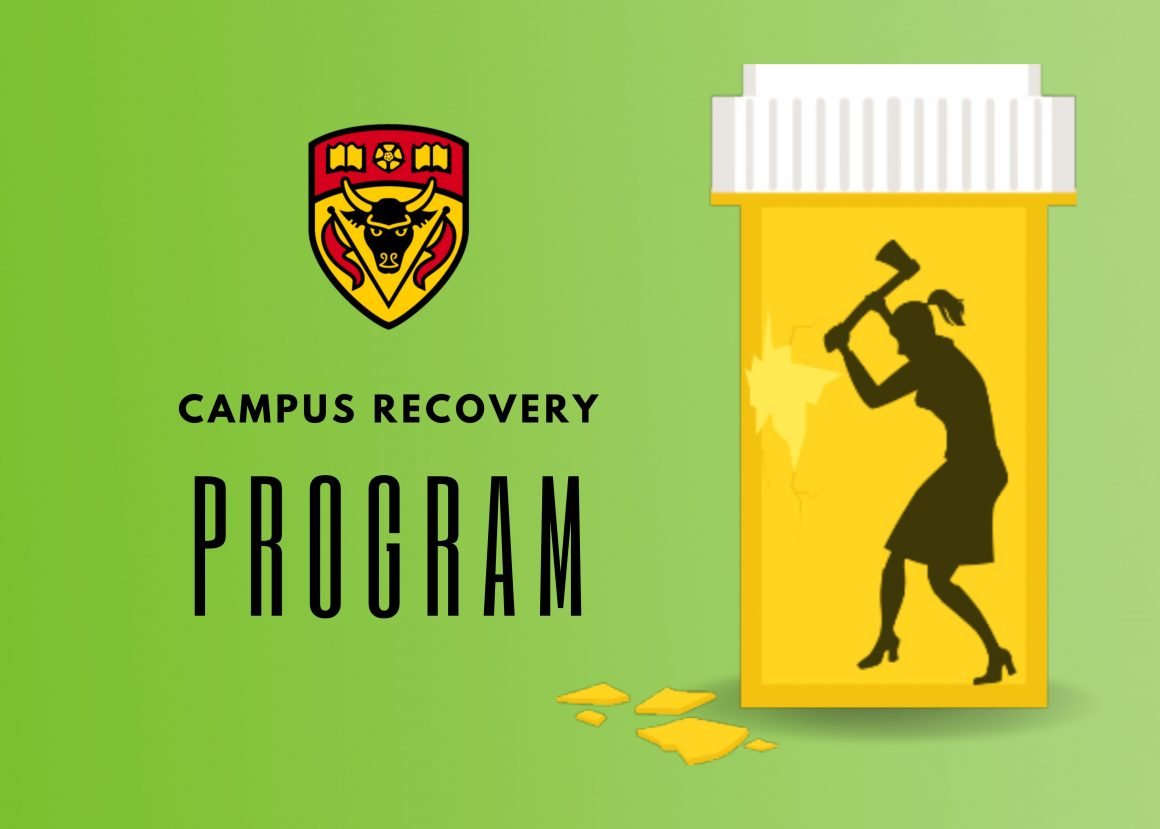
U of C to lead Recovery on Campus initiative across Alberta post-secondary schools
By Amanda Wilson, November 16 2022—
On Oct. 5 it was announced that the Alberta government had provided a grant of $500,000 to support campus-recovery programs across 26 schools in Alberta, with the University of Calgary leading the development. The program is a necessary component to providing student health and wellness support, as it is estimated that at least 20 per cent of students in post-secondary institutions face problematic substance use.
In an interview with the Gauntlet, UCalgary Recovery Community (UCRC) director, Dr. Victoria Burns discussed the need for the program and how it had come to fruition.
“The University of Calgary recovery community started and was inspired by my own lived experience of being in recovery — being a faculty member who started their recovery journey,” Burns explained. “During my Ph.D., I struggled with alcohol, primarily throughout my university career, so extending over four degrees it was very normalized to drink to excess.”
Burns also discussed how the campus environment allows addiction to thrive silently as overconsumption is ingrained in campus culture and how in her experience, there were no resources to seek support.
Burns had begun her recovery journey after meeting a colleague who had “recovered out loud.” She cites this moment as the catalyst to transform the trajectory of her life and work.
“In 2013 and really compartmentalizing my university life, I didn’t have any peers who I knew I hid. I didn’t tell people because I was too ashamed. It was better to be in active addiction than to be ‘recovering out loud.’” Burns explained.
This interaction inspired Burns to not only reevaluate her own relationship with substances but ultimately focus her work on breaking the stigma and creating support for students who are curious about seeking recovery.
“I was advised by other academics and people I knew in recovery, ‘don’t tell anybody you’re in recovery, it may affect you getting a job.’ I listened, even though I was studying harm reduction and addiction, and it felt like it wasn’t something I couldn’t discuss,” Burns said. “The motivation to start a collegiate recovery program on campus is because I didn’t — but if I had not been at that party that night, I don’t know where I would be today because things were getting so bad and I had no role models who were in recovery.”
Recovery on Campus is an ambitious initiative as addiction is a notoriously complex disease to solve for both the community and the individual. UCRC has adopted a Collegiate Recovery program, which emphasizes education, peer support and prevention. UCRC also uses a harm reduction model, as opposed to abstinence.
“We don’t adhere to a particular model, like 12 Step. It’s really meeting people where they’re at. It’s for folks who are recovery curious, questioning their relationship with substances, a certain behaviour, in recovery already or seeking recovery,” Burns said.
She states that the goal of the program is to inspire fellow recovery communities across the province.
“We’re using UCalgary as an innovation hub,” said Burns. “The model is started here, and then we have the satellite schools who are spreading the word and hoping to inspire by our own model.”
When asked about how these goals may be achieved, Burns discussed that currently, UCRC is conducting peer support meetings through Zoom, and Recovery 101 Training. Burns also elaborated that future funding plans include outreach and education, providing grants and scholarships for students in recovery and providing inclusive models such as the possibility of recovery housing, which may look like having a substance-free floor on campus residence.
“It’s about providing options for people, we’re really operating through that education,” she said. “How can we make the campus more inclusive and recognize that addiction is also a protected disability under human right legislation? How can we protect that on campus?”
In terms of province-wide action, UCRC is drafting a five-year proposal to gain operational funding to elongate its mission. This occurred when Alberta Health approached the program stating that the Alberta Recovery Council recognized a gap in post-secondary in the recovery-oriented system of care.
The goal of UCRC is to change attitudes towards addictions and hold open conversations on substance use and how to better support people who wish to change this relationship. UCRC also recognizes that supporting the individual will in turn support the community and prevent broader issues as addiction does not discriminate.
Those who are interested in learning more about Recovery on Campus Alberta are encouraged to visit www.recoveryoncampusalberta.ca.
